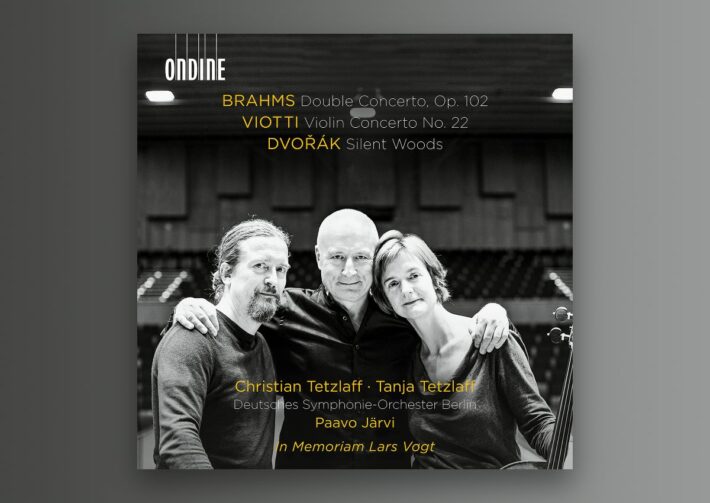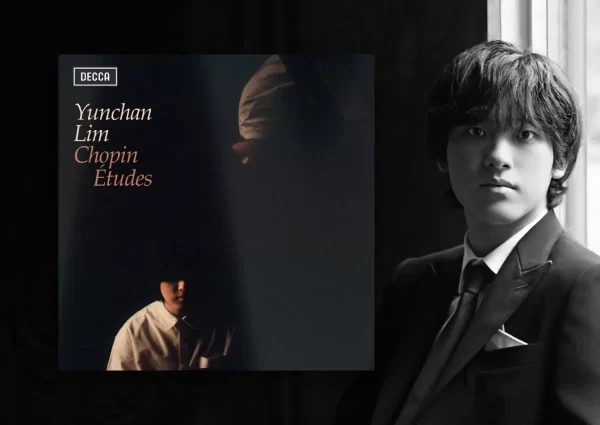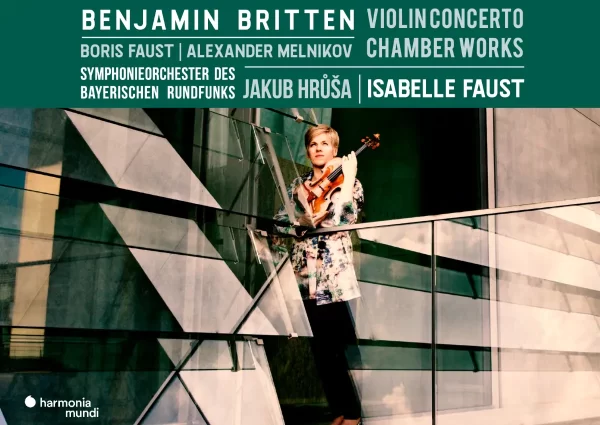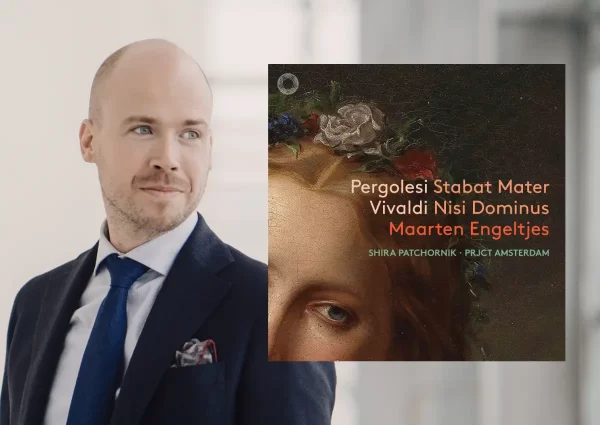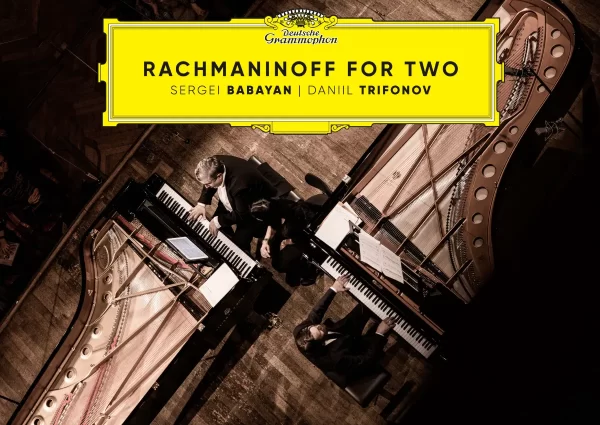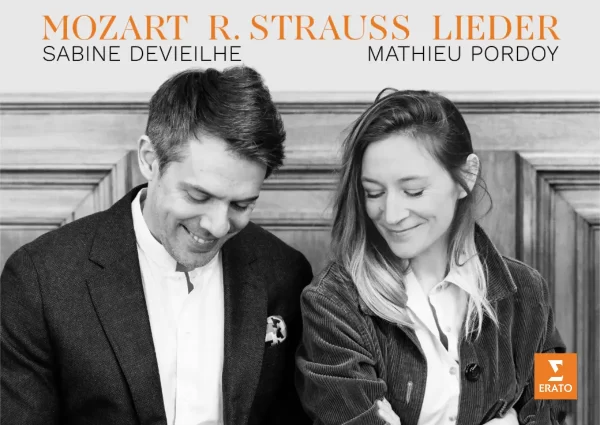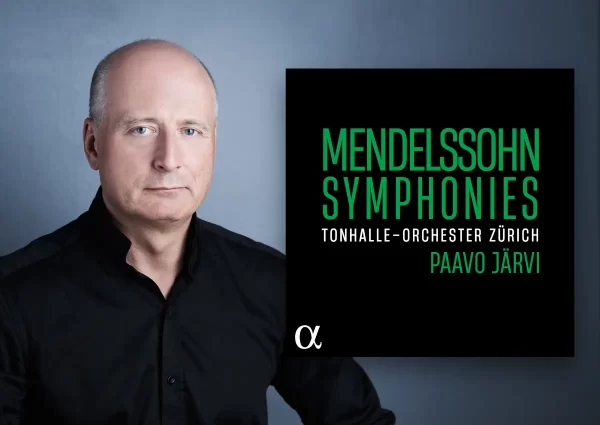This deeply touching tribute to the late German pianist Lars Vogt is offered by three of his colleagues, Christian and Tanja Tetzlaff and Paavo Järvi. While this is not the first time this kind of loss has led to a recording, this one seems particularly thoughtful and intense.
Robin Ticciati was originally slated to conduct the program but became ill, so Järvi stepped in at the last moment. Reading this gave me cause for concern: the close partnership between Tetzlaff and Ticciati in recent recordings of the Beethoven, Sibelius, Brahms, and Berg concertos is rather special, and a regular criticism of my recent reviews of Järvi’s recent Tchaikovsky and Bruckner recordings has been objective interpretations that embrace emotional restraint in repertoire that very much calls for the opposite. So, I was genuinely taken aback by the power and drive heard in the opening moments of the Brahms – here is the emotional engagement I found missing in those other recording! And it never lets up – in several passages throughout the concerto the string playing has an intensity and sensuousness that could be mistaken for a work by Richard Strauss. Whether this elevated level reflects Jarvi’s friendship for Vogt, and/or the Tetzlaffs matters not, the result is music making is emotionally gripping.
Brahms composed the concerto in the summer of 1887, perhaps, at least in part, as an act of reconciliation towards his estranged friend Joseph Joachim. A rift in their long friendship developed after Joachim divorced his wife (apparently Brahms took the side of Jochim’s wife in the proceedings). The Tetzlaff’s, in an engrossing interview that serves as liner notes, discuss how these life events are reflected in the music: the opening cello solo (Brahms), angry, frustrated and grieving the loss of his friend, answered by the violin (Joachim) who expresses much the same. As the movement proceeds the soloists/protagonists begin to shed their emotional armor, by the end finding a place of uneasy reconciliation. As both soloists acknowledge, this is pure speculation, but one certainly senses this narrative in their vivid, characterful, and enthusiastic playing (matched every step of the way by the Berlin orchestra). The second movement is then wonderfully lyrical and warm (full reconciliation?), emotions more inward, followed by a driven third movement in which orchestra and soloists revel in its distinctly Hungarian flavor.
Related Posts
- Review: Brahms – Double Concerto – Mutter, Ferrández, Honeck
- Review: Bruckner – Symphony No. 8 – Tonhalle-Orchester Zürich – Paavo Järvi
- Review: Brahms and Berg – Violin Concertos – Christian Tetzlaff
- Review: Janáček – Piano Works – Lars Vogt
Apparently Brahms greatly admired Viotti and his 22nd concerto, and had heard Joachim play it early in their friendship. The reading has tremendous energy and textural clarity (hallmarks of Jarvi’s Beethoven, Schuman, and Brahms cycles with the Deutsche Kammerphilharmonie Bremen/RCA); Christian’s playing is immaculate, playful, and spontaneous in the fast movements, sweetly poetic in the Adagio.
The program ends with a genuinely touching reading of Dvořák’s Waldesruhe (Silent Woods) for cello and orchestra. The opening’s nocturnal atmosphere leads into a more impassioned and desperate middle section in which there is a tangible sense of loss and grief. The music’s emotional power far outlasts the music’s modest length.
The Berlin RSO sounds exceptionally fine, beautifully balanced, with plenty of character and color. The horns’ burnished glow shines throughout, as does the vivid character of the bassoons. And how carefully these winds listen to one another, as witnessed in their balanced ensemble in the second movement of the Brahms.
Any concern over the shortness of the program (just shy of 61 minutes) is offset by the thoughtful programming and overall excellence of the performances. Few albums in recent memory guide the listener on such a satisfyingly emotional journey. Ondine’s engineering is exemplary, capturing just enough room ambiance to warm the sound without sacrificing clarity, with natural (never spotlighted) integration of the soloists in the overall sound – strongly recommended.

Brahms: Double Concerto, Viotti: Violin Concerto No. 22, Dvořák: Silent Woods
Christian Tetzlaff – Violin
Tanja Tetzlaff – Cello
Deutsches Symphonie-Orchester Berlin
Paavo Järvi – Conductor
Ondine, CD 1423-2
Recommended Comparisons
Brahms – Repin, Mork | Brahms – Ster, Ma | Dvořák – Mackerras | Dvořák – Ma, Maazel
Included with an Apple Music subscription:
Read more classical music reviews or visit The Classic Review Amazon store
Follow Us and Comment:
Get our periodic classical music newsletter with our recent reviews, news and beginners guides.
We respect your privacy.

